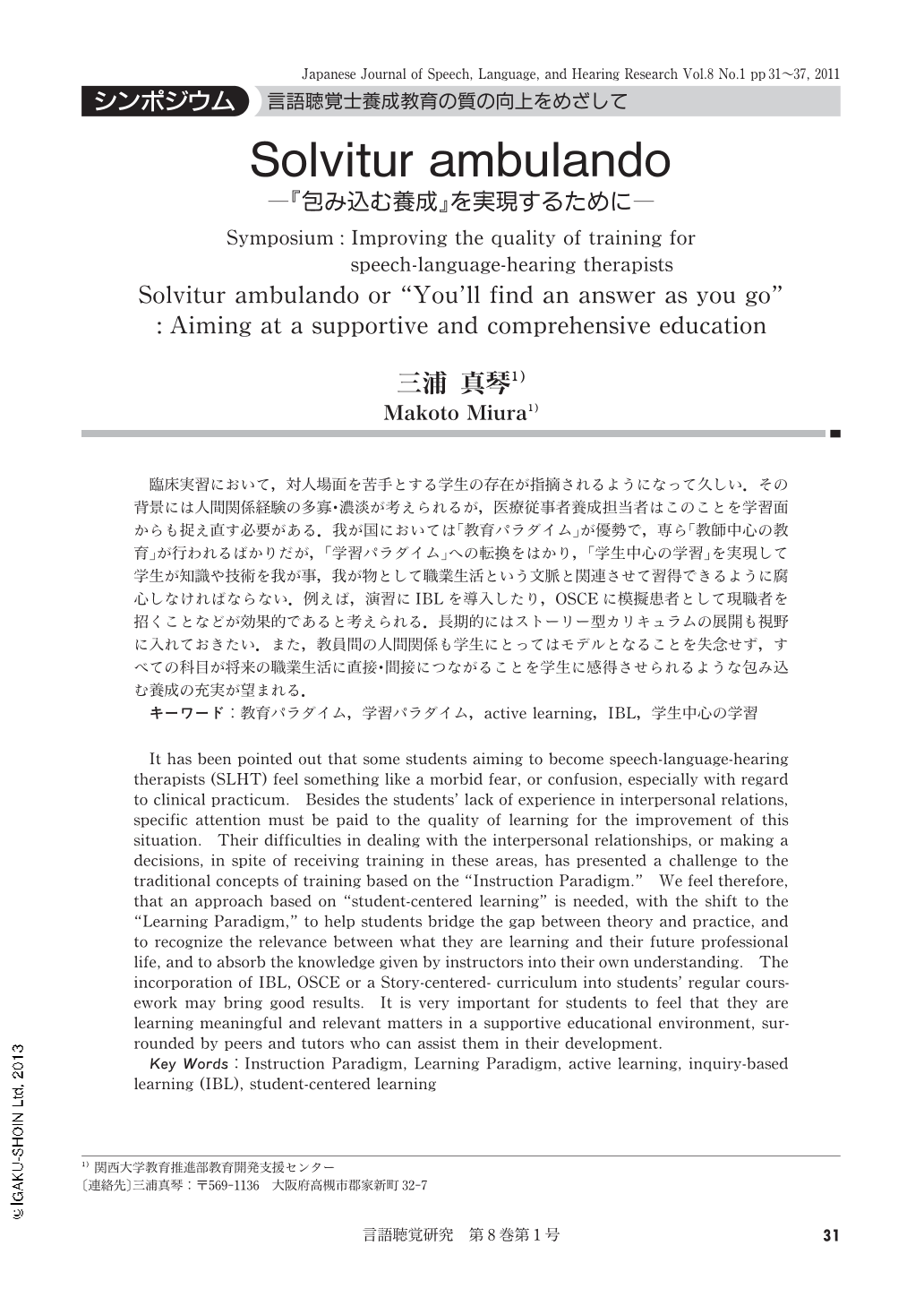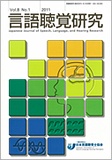Japanese
English
- 有料閲覧
- Abstract 文献概要
- 1ページ目 Look Inside
- 参考文献 Reference
- サイト内被引用 Cited by
臨床実習において,対人場面を苦手とする学生の存在が指摘されるようになって久しい.その背景には人間関係経験の多寡・濃淡が考えられるが,医療従事者養成担当者はこのことを学習面からも捉え直す必要がある.我が国においては「教育パラダイム」が優勢で,専ら「教師中心の教育」が行われるばかりだが,「学習パラダイム」への転換をはかり,「学生中心の学習」を実現して学生が知識や技術を我が事,我が物として職業生活という文脈と関連させて習得できるように腐心しなければならない.例えば,演習にIBLを導入したり,OSCEに模擬患者として現職者を招くことなどが効果的であると考えられる.長期的にはストーリー型カリキュラムの展開も視野に入れておきたい.また,教員間の人間関係も学生にとってはモデルとなることを失念せず,すべての科目が将来の職業生活に直接・間接につながることを学生に感得させられるような包み込む養成の充実が望まれる.
It has been pointed out that some students aiming to become speech-language-hearing therapists (SLHT) feel something like a morbid fear, or confusion, especially with regard to clinical practicum. Besides the students' lack of experience in interpersonal relations, specific attention must be paid to the quality of learning for the improvement of this situation. Their difficulties in dealing with the interpersonal relationships, or making a decisions, in spite of receiving training in these areas, has presented a challenge to the traditional concepts of training based on the "Instruction Paradigm." We feel therefore, that an approach based on "student-centered learning" is needed, with the shift to the "Learning Paradigm," to help students bridge the gap between theory and practice, and to recognize the relevance between what they are learning and their future professional life, and to absorb the knowledge given by instructors into their own understanding. The incorporation of IBL, OSCE or a Story-centered- curriculum into students' regular coursework may bring good results. It is very important for students to feel that they are learning meaningful and relevant matters in a supportive educational environment, surrounded by peers and tutors who can assist them in their development.

Copyright © 2011, Japanese Association of Speech-Language-Hearing Therapists. All rights reserved.


